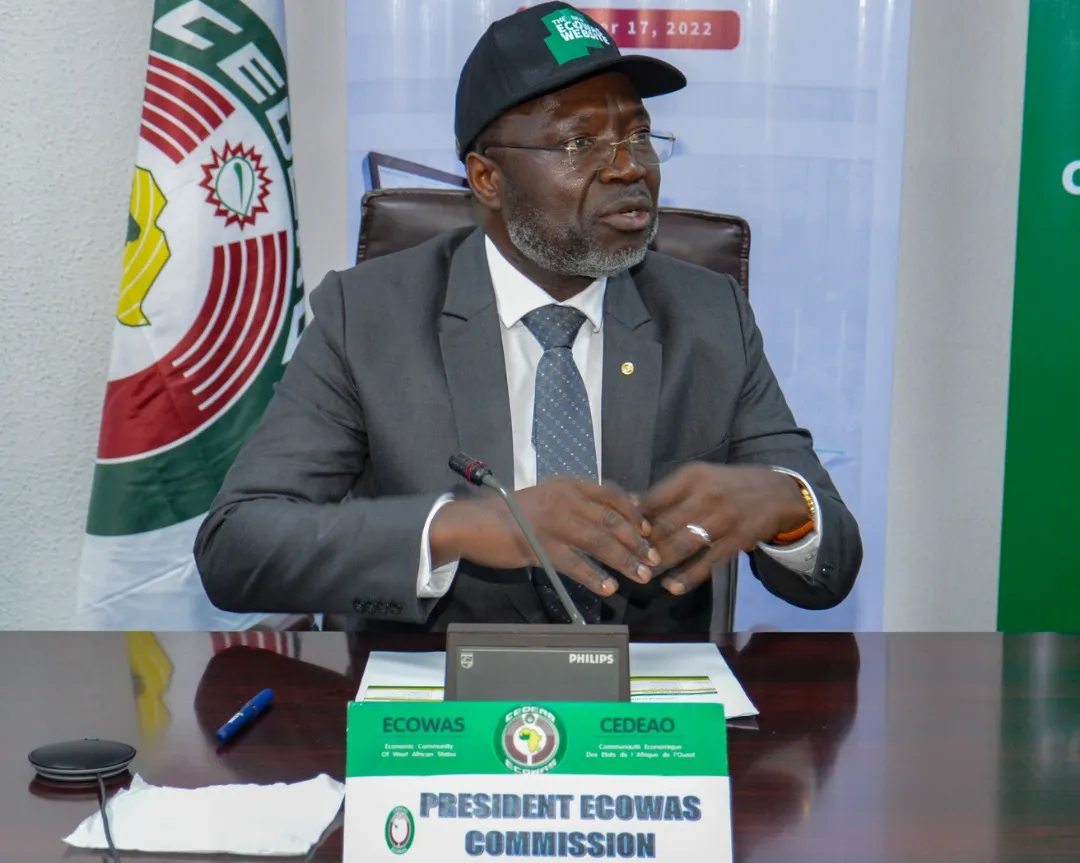Daniel Adaji
The President of the Economic Community of West African States (ECOWAS), Dr. Omar Touray, has condemned the proliferation of checkpoints across West African borders, describing the practice as a clear violation of the ECOWAS Protocol on the Free Movement of Goods and Services.
During an assessment tour on Wednesday of the Nigeria–Benin Seme Border—one of the region’s busiest trade corridors—Touray criticized border practices that hinder integration efforts and facilitate corruption.
“We have received troubling reports of citizens being asked to pay without receipts. It frustrates travelers, delays trade, and creates opportunities for corruption,” he said.
Touray pointed out that multiple customs and immigration posts within short distances of each other not only create unnecessary delays but also violate regional agreements aimed at streamlining cross-border movement.
“These excessive checkpoints are not only inefficient; they are also against the spirit of regional cooperation,” he said.
His visit comes amid growing concerns from travelers and business operators about delays, harassment, and unofficial charges at various West African borders.
Reports from past ECOWAS monitoring exercises have shown that such bottlenecks are among the biggest threats to intra-regional trade.
Touray expressed disappointment over the poor state of infrastructure at the Seme border, despite heavy ECOWAS investment in the post.
“This is one of the busiest and most strategic border posts in West Africa, yet we are faced with expensive facilities—scanners, lighting systems, and bridges—that are simply not working. That is unacceptable,” he said.
He emphasised that although ECOWAS provides initial funding for such projects, their upkeep is the responsibility of individual member states.
“We must maintain what we build. Regional integration cannot succeed on broken systems and neglected assets,” he added.
Clarifying widespread misconceptions about the ECOWAS Trade Liberalisation Scheme (ETLS), Touray stressed that the free movement protocol does not eliminate the need for documentation and order.
“Free movement does not mean no documentation; free movement does not mean a free-for-all. Security and freedom must go hand in hand. Travelers must carry valid identification, and customs procedures must remain in place to ensure order and safety,” he explained.
In response to the mounting complaints, Nigeria’s Permanent Representative to ECOWAS, Ambassador Musa Nuhu, revealed that President Bola Tinubu has approved the formation of a Presidential Task Force to identify and dismantle redundant security checkpoints across the country.
Touray’s inspection also shed light on other operational issues at the border.
Dr. Ben Oramalugo, Comptroller of Customs at the Lagos–Seme post, reported persistent challenges, including non-functional scanners, lack of lighting in pedestrian areas, and no connection to Nigeria’s national electricity grid.
“This is Nigeria’s number one border, connecting the entire Francophone region, yet we are not connected to the National Grid. When Benin’s power goes out, we are left in total darkness,” Oramalugo lamented.
Touray’s engagement with border officials, local communities, and security agents provided him with firsthand experience of the difficulties undermining the effectiveness of ECOWAS trade policies.



